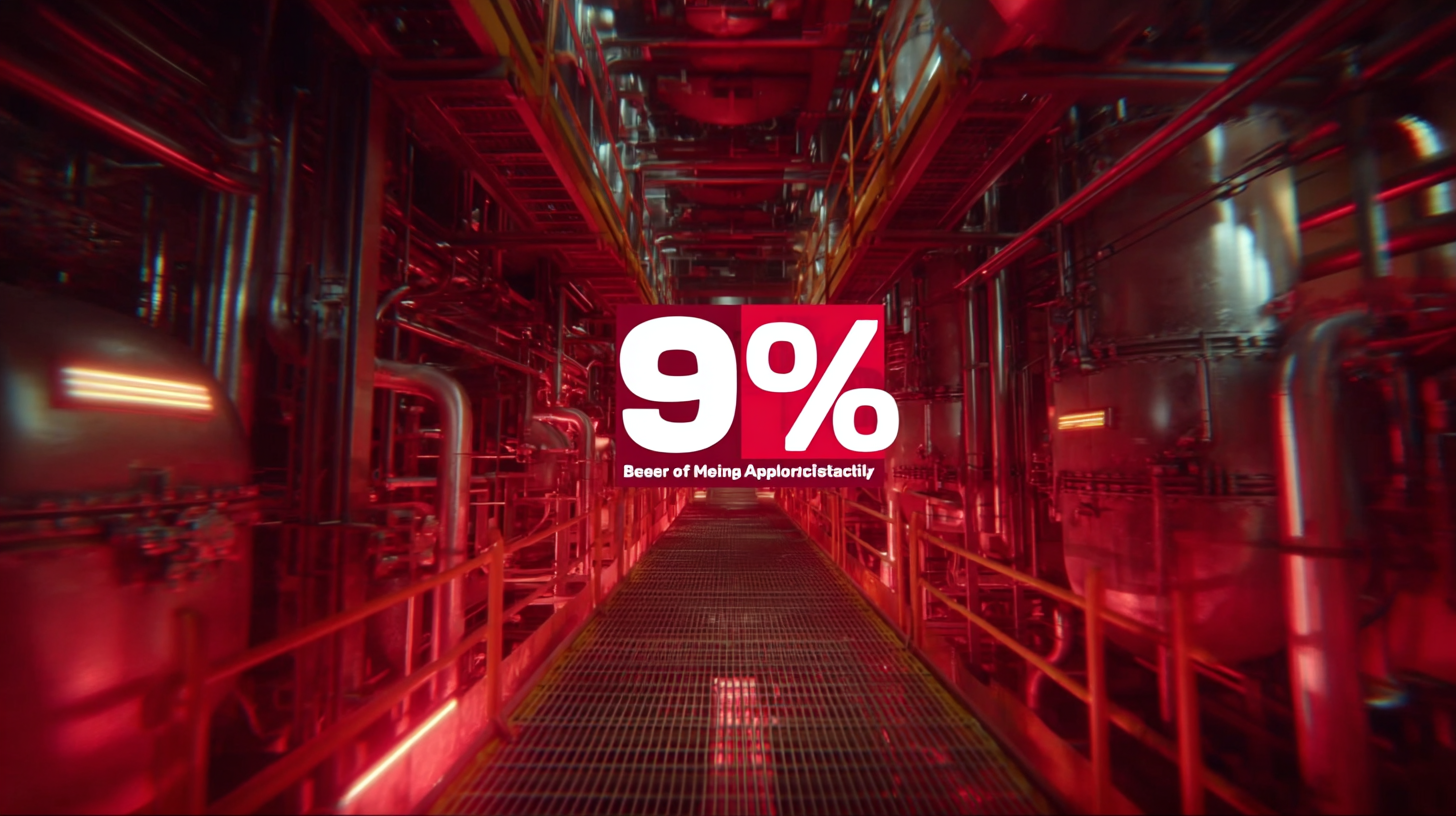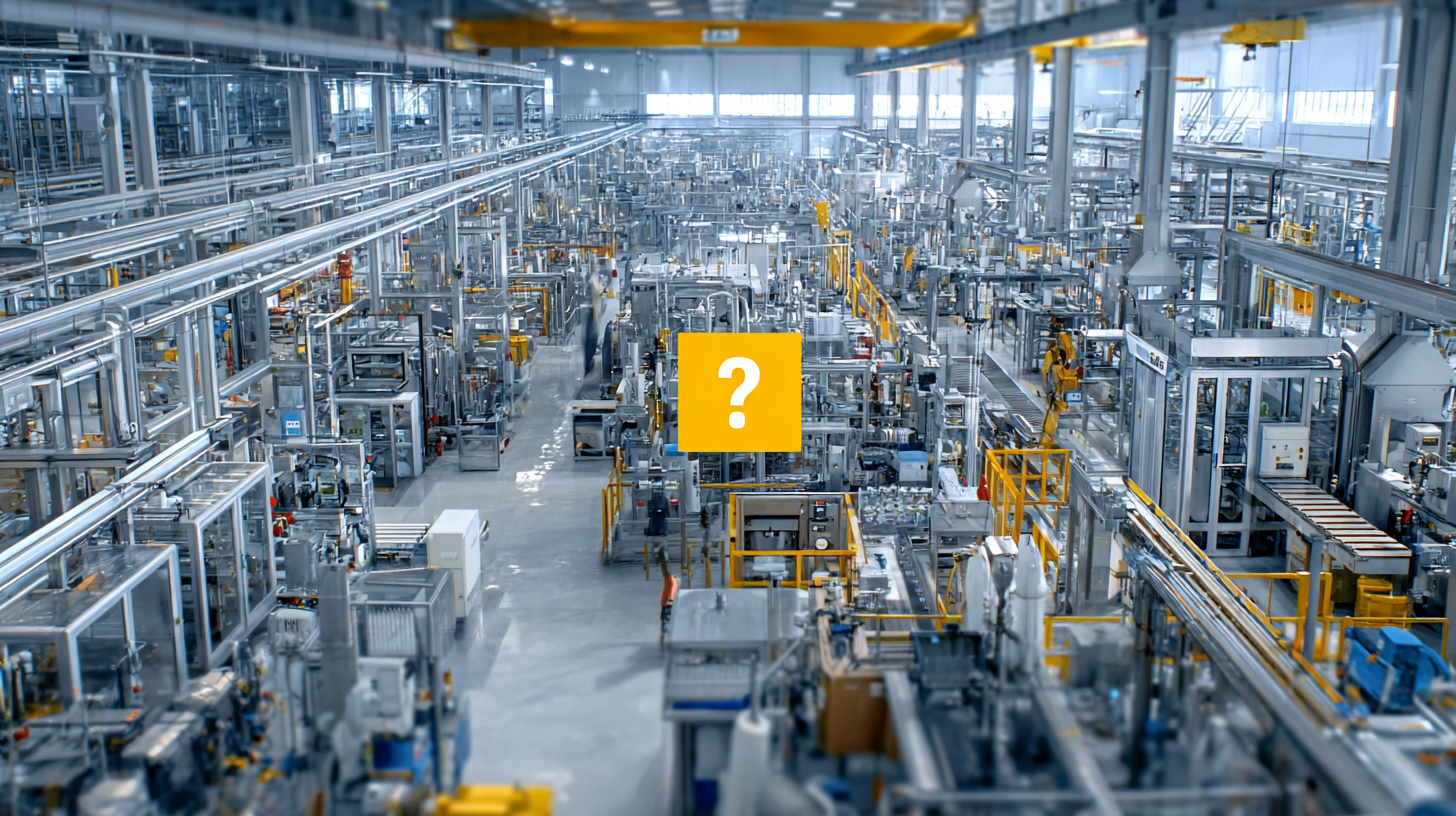
Exploring Real-World Applications: What is the Impact of Best Manufacturers in Industrial Efficiency?
In today's rapidly evolving industrial landscape, the role of manufacturers extends far beyond traditional production lines; they have become pivotal players in enhancing overall industrial efficiency. As we delve into the impact of the best manufacturers on real-world applications, it is essential to examine how their innovative practices and cutting-edge technologies are reshaping operations across various sectors. From automating processes to implementing data-driven decision-making, leading manufacturers are not just optimizing their workflows but also contributing to sustainability and resource conservation. This blog will explore the significant advancements made by top manufacturers, highlighting their contributions to efficiency improvements, cost reductions, and driving industry standards forward. Join us as we uncover the transformative power of manufacturers in the quest for enhanced productivity and streamlined operations in the modern industrial environment.

Impact of Leading Manufacturers on Industry Efficiency and Sustainability in 2025
As we approach 2025, the role of leading manufacturers in enhancing industry efficiency and sustainability becomes increasingly significant. According to a recent report by McKinsey & Company, companies that adopt advanced technologies such as IoT and AI can improve their operational efficiency by up to 30%. These innovations allow manufacturers to optimize resource allocation, minimize waste, and speed up production processes, ultimately leading to enhanced profitability and lower environmental impact.

Moreover, a study from the World Economic Forum highlights that sustainable practices are no longer just an option but a necessity for competitive advantage. As consumer preferences shift towards sustainable products, manufacturers are responding by investing in renewable energy sources and adopting circular economy principles. By 2025, it is projected that companies implementing sustainable practices will not only reduce their carbon footprint by 50% but will also experience a 20% increase in customer loyalty. This dual focus on efficiency and sustainability will shape the industry's future landscape, driving both economic and environmental benefits.
Innovative Solutions That Enhance Operational Performance in Manufacturing
In today’s competitive manufacturing landscape, innovative solutions play a pivotal role in enhancing operational performance. According to a recent report by McKinsey, manufacturers that adopt advanced technologies such as automation and data analytics can improve productivity by up to 30%. The integration of these technologies not only streamlines operations but also significantly reduces downtime, allowing manufacturers to meet consumer demands more effectively. Companies leveraging Internet of Things (IoT) devices, for example, have reported a 20% increase in efficiency by optimizing their supply chain management through real-time data tracking.
Moreover, the emphasis on sustainable practices has led to the implementation of innovative manufacturing processes that minimize waste and energy consumption. A report from the World Economic Forum highlights that firms adopting sustainable manufacturing practices can achieve cost savings of up to 15%, in addition to enhancing brand reputation. These manufacturers utilize advanced materials and cleaner technologies, ultimately boosting their operational performance while contributing to environmental conservation. By prioritizing these innovative solutions, manufacturers are not only improving their bottom line but also positioning themselves as leaders in an ever-evolving industry.
Key Technologies Transforming Manufacturing Efficiency Today and Tomorrow
In today’s rapidly evolving manufacturing landscape, key technologies are at the forefront of enhancing operational efficiency. Innovations such as the Internet of Things (IoT), artificial intelligence (AI), and advanced robotics are transforming how industries operate. For instance, a recent report by McKinsey highlights that manufacturers leveraging IoT data can improve productivity by 15% to 20%. AI-driven analytics can anticipate maintenance needs, minimizing downtime and reducing costs, which are crucial for maintaining competitive advantage.
Tip: To integrate these technologies effectively, start with a pilot program focusing on a specific area of your production line. Monitor the results closely, and scale up based on the insights gathered.
Moreover, automation is streamlining processes, allowing human workers to focus on more complex tasks that require creative problem-solving. According to a study by Deloitte, manufacturing automation can boost productivity levels by up to 25%, showcasing its potential impact on efficiency. Implementing such technologies not only fosters better resource allocation but also enhances overall product quality.
Tip: Invest in training programs for your workforce to ensure they are equipped to work alongside advanced technologies, maximizing both human and machine capabilities.
Case Studies: Successful Implementation of Best Practices by Top Manufacturers
In recent years, top manufacturers have increasingly adopted best practices that significantly bolster industrial efficiency. One standout example is Toyota, which implements the Lean Manufacturing methodology. According to a 2022 report by the Lean Enterprise Institute, companies that adopted Lean practices reported a 25% reduction in lead times and a 30% increase in productivity. This transformation not only enhances operational efficiency but also affects overall profitability and customer satisfaction.
Another case study worth mentioning is Siemens, which has leveraged digital twin technology across its manufacturing processes. A McKinsey report indicates that companies integrating digital twins can achieve a 20-30% increase in efficiency and a 15% reduction in production costs. Siemens' application of this technology has allowed for real-time monitoring and optimization of production lines, highlighting the importance of data-driven decision-making in today’s industrial landscape. As more manufacturers embrace these best practices, the ripple effects on productivity and sustainability are becoming increasingly evident.
Impact of Best Manufacturers on Industrial Efficiency
Future Trends: Predicting Manufacturing Efficiency Developments by 2025
As the manufacturing sector evolves, understanding future trends in efficiency becomes critical for businesses aiming to sustain competitive advantage. By 2025, it is projected that the adoption of Industry 4.0 technologies will lead to a staggering 20-30% increase in productivity across manufacturing sectors. This increase will largely result from advancements in automation, with estimates suggesting that over 50% of manufacturing processes will incorporate AI-driven robotics, allowing for enhanced precision and reduced downtime.

Moreover, sustainability will play a pivotal role in shaping manufacturing efficiency. According to a recent report by McKinsey, companies prioritizing eco-friendly practices are expected to see efficiency gains of 15-25% by leveraging renewable resources and waste reduction strategies. This shift not only aligns with global sustainability goals but also appeals to increasingly environmentally-conscious consumers, further driving demand for efficient practices. By 2025, manufacturers who invest in these technologies and sustainable practices will not only improve operational efficiency but will also strengthen their market positioning in a rapidly changing economic landscape.
